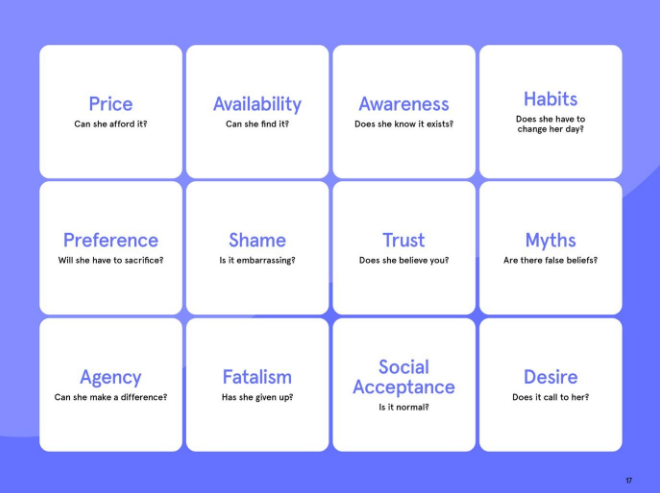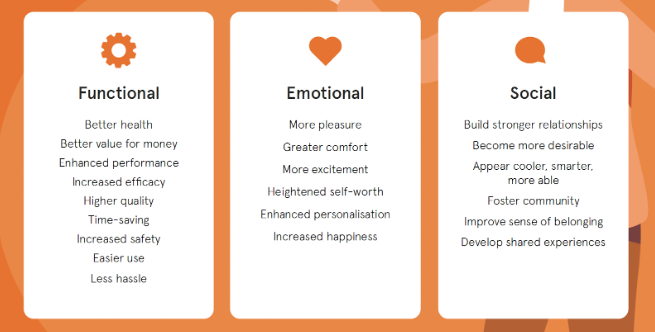Engaging With Consumers: Insights from Futerra
JUNE 10, 2024 Content provided by Futerra, a sustainable lifestyles partner of CGF
Delicious food, better health, saving money and helping the environment: the case for sustainable diets is strong.
A Global Sustainability Study revealed that a whopping 50% of consumers rank sustainability within their top five drivers for value, especially millennials who consider sustainability a crucial criterion for making purchases.
So why do so many people struggle to change their food choices?
This is an important question for brands seeking to encourage healthy meal choices and reduce food waste. Thankfully, behavioural scientists are revealing the answer and have discovered ways to help consumers take action.
In Futerra’s work with members of The Consumer Goods Forum, we’ve also put these principles into action and had great results. Brands can be valued partners for consumers in making lifestyle changes, by following a few simple principles.
- Understand the barriers: For many people, there are barriers between their good intentions and their ability to make change. Too many brands focus on making the case for action, forgetting that many consumers already want to move forward, but there are things in their way.
- Cost & Availability – Can people find and afford ingredients? Do they have the equipment they need for the recipe? Are they cutting down on oven use to save money? Do they believe buying spices etc are worth the money?
- Time – Do busy families have time to buy, prepare and cook your recommended dishes? Do they need to use shortcuts in cooking?
- Habits – Are people familiar with these meals and ways of preparing them? Are they culturally appropriate?
- Myths – Is there anxiety about food ‘going off’ because of labels or food myths? Do they think food claims are greenwash?
These are just a few of the barriers that people can face when trying to change their meal choices. Before running any campaign or launching products we recommend listening to consumers about why they aren’t already taking action.
- Sell the benefits:
Functional benefits play a crucial role in selling low carbon behaviors. Consider how sustainability can add value for money, enhance performance and efficacy, improve quality, save time, or contribute to safety. Understanding and emphasizing these functional benefits can make sustainable choices more appealing to the public.
Emotional benefits are equally important. It’s essential to acknowledge that the consumer is the hero, not the brand or communicator. The feel-good factor associated with buying sustainable products and taking low carbon actions can be a significant motivator. Does sustainability strengthen sensory enjoyment, provide physical comfort, offer an exciting experience, boost self-worth, or offer a sense of personalisation? These emotional benefits can truly make a difference in consumers’ decision-making.
Finally, let’s not forget about social benefits. How does sustainability impact family dynamics, desirability in the eyes of others, the perception of being cool, smart, or part of a community? Highlighting these social benefits can create a sense of belonging and encourage individuals to embrace sustainable choices.
2. Reach people where they are:
In the evolving landscape of marketing, influencer and creator content is rapidly surpassing traditional marketing methods, emerging as a powerful tool to promote sustainable behaviors. With platforms like TikTok, YouTube and Instagram becoming pivotal sources of advice for sustainable living, 83% of consumers find these channels effective for guidance, and 75% are more inclined to adopt sustainable behaviors after engaging with sustainability content on social media. Creators possess unique superpowers in this arena:
- Banish Myths – Content creators and influencers have the power and relatability to show consumers that making sustainable actions is easier than they may think.
- Weave in Sustainability – From plant-based meals to leftover food hacks, influencers can embed sustainability in their content in a way that speaks naturally to their audience and seamlessly fits with their existing style.
- Normalize New Behaviors – By incorporating sustainable behaviors into their everyday lives and sharing these moments with their followers, influencers demonstrate how these actions can be integrated into daily routines.
- Raise the Status – Influencers are the tastemakers of our generation. Their role in current society means they have a huge pull in deciding the new trends. By promoting sustainable practices as desirable and trendy, they can elevate the status of low carbon lifestyles, making them more appealing to a broader audience.
Take a look at some of the content creators doing good work in promoting sustainable lifestyles:






